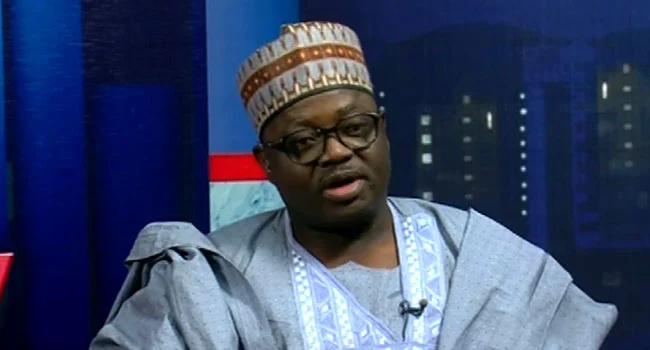The Director-General of the National Orientation Agency (NOA), Lanre Issa-Onilu, urged Nigerians on Wednesday to develop survival strategies amid the economic challenges following the removal of the petrol subsidy by President Bola Tinubu’s administration.
Issa-Onilu, a former spokesman for the ruling All Progressives Congress (APC), warned that reinstating the petrol subsidy, as demanded by #EndBadGovernance protesters, would exacerbate poverty rather than alleviate it.
“Demanding the return of the subsidy is an emotional appeal, not an economic one. We need to understand that reinstating it won’t solve poverty; it will make it worse,” Issa-Onilu said on Channels Television’s Sunrise Daily breakfast show. “Our focus should be on how to adapt and thrive despite the subsidy removal. We must support government efforts to ensure survival without it.”
He also acknowledged the significant trust deficit between Nigerian leaders and citizens, stemming from years of broken promises.
“It is challenging to engage a population that has repeatedly felt let down,” Issa-Onilu told information managers. “Nigerians are skeptical and ask, ‘Is this another promise that will be broken?’ We need to demonstrate that this government keeps its promises.”
‘Painful But Necessary’
On Sunday, President Bola Tinubu firmly ruled out the return of the petrol subsidy, describing its removal as a difficult but essential step for economic reform. In his address to the nation, Tinubu emphasized the necessity of this decision despite the ongoing #EndBadGovernance protests highlighting economic hardships.
Protesters have been calling for the reinstatement of petrol and electricity subsidies to alleviate the economic burden on citizens. Nigeria, Africa’s most populous nation, faces severe energy challenges, with state-owned refineries non-operational and a heavy reliance on imported refined petroleum products. The state-run NNPC is the primary importer of these commodities.
Since the subsidy removal in May 2023, petrol prices have tripled from around N200 per litre to about N700 per litre, exacerbating the financial strain on citizens who rely on petrol for transportation and electricity generation due to unreliable power supply.
Simultaneously, the government unified forex windows, causing the naira’s value to plummet from $1/N700 to over $1/1600 on the parallel market. This devaluation triggered a spike in food and commodity prices, leading to rampant inflation.
Despite claims by labour leaders and industry experts that the government might still be indirectly subsidizing petrol, the NNPC has consistently stated that the subsidy has been fully removed. Human rights lawyer Femi Falana has called on the government to clarify these allegations and increase transparency regarding fuel importation.
As Nigeria navigates these economic reforms, Issa-Onilu emphasizes the importance of resilience and adaptation, urging citizens to support government initiatives aimed at overcoming these challenges.



